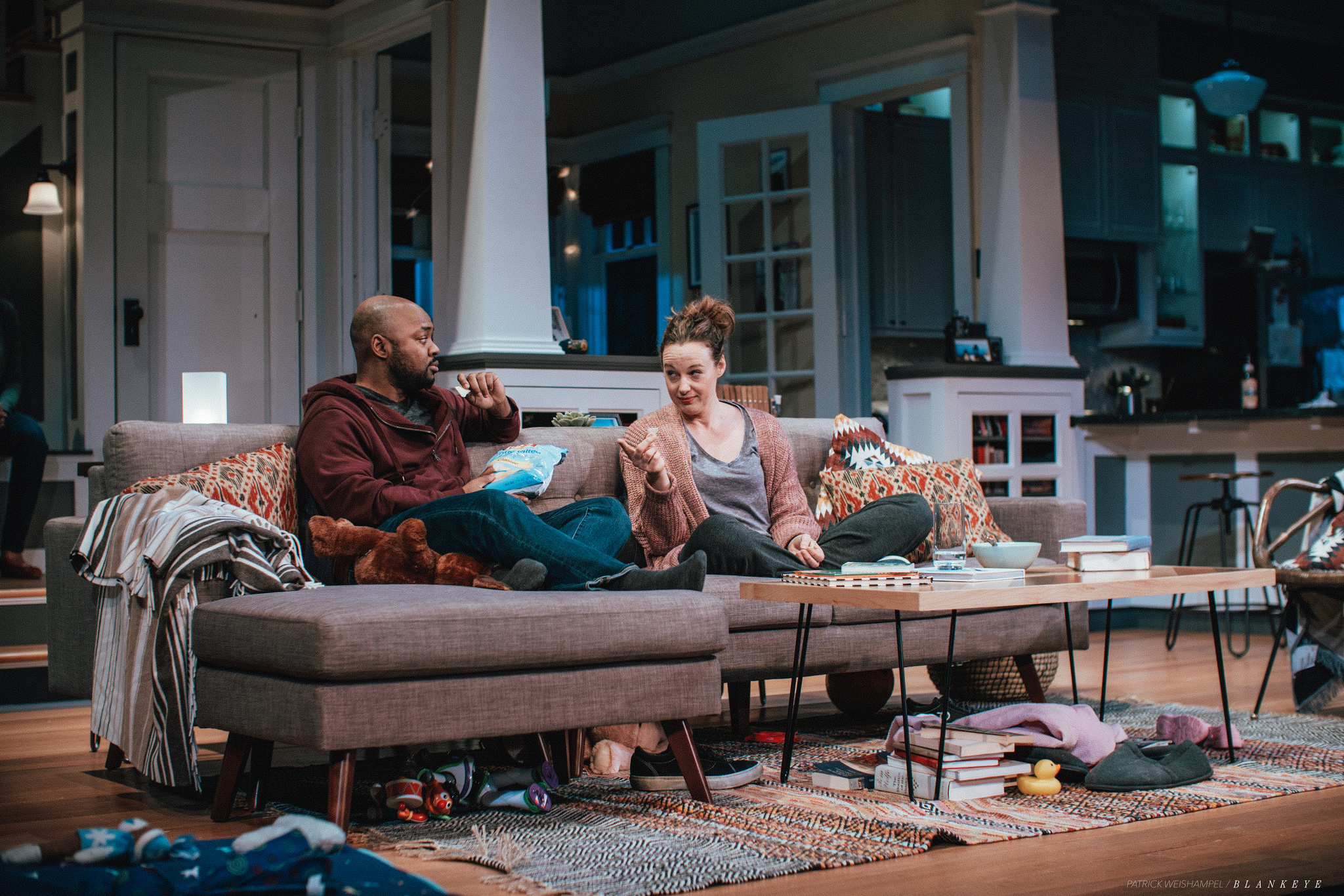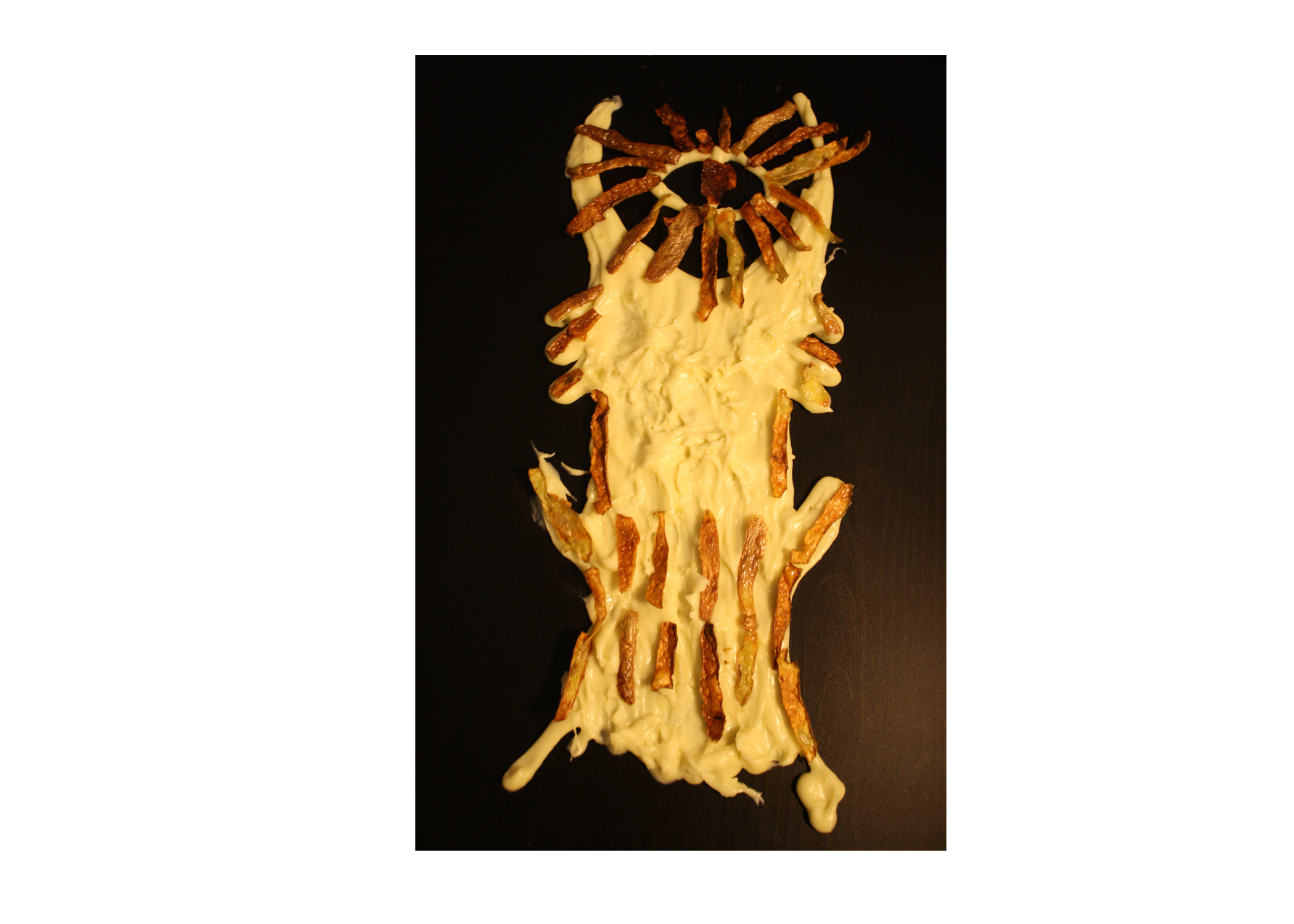Portland Center Stage’s production of Tiny Beautiful Things, Nia Vardalos’ adaptation of Cheryl Strayed’s book of the same name, opened March 1.
The book, published a few months after the release of her acclaimed memoir Wild, is a collection of advice columns Strayed wrote pseudonymously for The Rumpus’ “Dear Sugar” online advice column from 2010–2012. Dana Green portrays Sugar/Cheryl for the PCS production. Leif Norby, Lisa Renee Pitts and Brian Michael Smith receive billing as “Letter Writers 1, 2, and 3,” but they each play many characters and composite characters over the course of the 80-minute show.
In a speech given during a VIP dinner preceding the performance, Strayed spoke about her experiences writing the “Dear Sugar” columns while revising successive drafts of Wild. “It is one of the most surreal experiences of my life to see these beautiful actors bring to life the words I wrote in my house in SE Portland,” Strayed said. “I hope that tonight you see yourself and a little of the beauty that surrounds us.”
Regarding the advice she gave, Strayed said she strove not to tell people what to do but to let them know that “it’s going to be okay.” Although she wrote the columns without meeting the letter writers in real life, the play sees the letter writers interacting with Sugar’s character.
The play operates as a series of moments rather than distinct scenes demarcated by changes of lights and scenery. Periods of group conversation, including a segment when all the letter writers and Sugar make sandwiches at the countertop, punctuate moments when Sugar addresses a single letter writer. At other times a single letter writer and Sugar sit on a couch, including one memorable scene in which Smith loudly eats from a bag of potato chips while depicting a letter writer who describes himself as “not a smart man.”
While the sequencing of letters seems to have an ineffable intuitive logic, there is not a plot other than the subtle lighting changes between moments and Sugar’s use of a prop laundry basket to indicate a sense of place more than time.
“By putting it in Sugar’s house,” said director Rose Riordan, “it also represents all of their houses. They’re all together in the middle of the night as Sugar writes the responses.”
It may seem hard to keep up with since each of the actors play varied roles as men, women and children. “We play the gamut,” Riordan said. “It’s right there in the language and the body.” With a subtle change in vocal tone and very deliberate and stiff movements of the body, Pitts embodies an elderly man at one point. At another point, Smith portrays a school-age letter writer, which he does through rapid speech and broad, animated bodily movement.
All three expressed admiration for the wisdom expounded by Strayed in the guise of Sugar. “She is incredibly intelligent,” Riordan said. “She never tries to make herself seem cool. She always feels very relatable. She is just really insightful.”
“And brave,” Norby added.
Through the Sugar persona, Strayed uses personal experience as teaching parables; some of these events, such as described in the answer to the “WTF” letter writer, are particularly harrowing. However, these always lead to a redemptive lesson. “There was purpose in the pain,” Pitts said. “She found or made the purpose in the pain.”
Readers of the book will recognize all of the letters in the stage adaptation. The famous “WTF” letter, voiced by Norby, acts as a recurring motif until Sugar’s response at about the halfway point. The letter from “Living Dead Dad,” also read by Norby, acts as the climactic segment of the play. During this moment, Sugar and the letter writer sit at the kitchen table as the daylight outside the house’s windows slowly dims to nighttime. “Living Dead Dad” slowly walks offstage and there is a brief pause before Smith enacts a humorous letter as a counterpoint.
Some letters, such as the young woman asking about an arrangement with a wealthy man, receive very brief treatment in montage-like sequences of volleys of questions and answers. Some pieces in the book, such as the one in which Sugar writes that “it will never be ok that our mothers are dead” and letters from struggling aspirant writers are not part of the stage version.
“It’s very moving, seeing how your life has come to fruition,” Strayed said. “And it’s not over yet.”
She is currently at work on another book, though she could only disclose that it is a memoir. So what should people take away from this production? Without hesitation Riordan answers, “Comfort.”
“You’re not alone,” Riordan responded, adding that “you feel like you’re constantly slapped in the face with illumination.”
“Everyone should come,” Riordan said.
“That’s a must,” Renee Pitts said.
Tiny Beautiful Things continues through March 31 at The Armory at Portland Center Stage.






